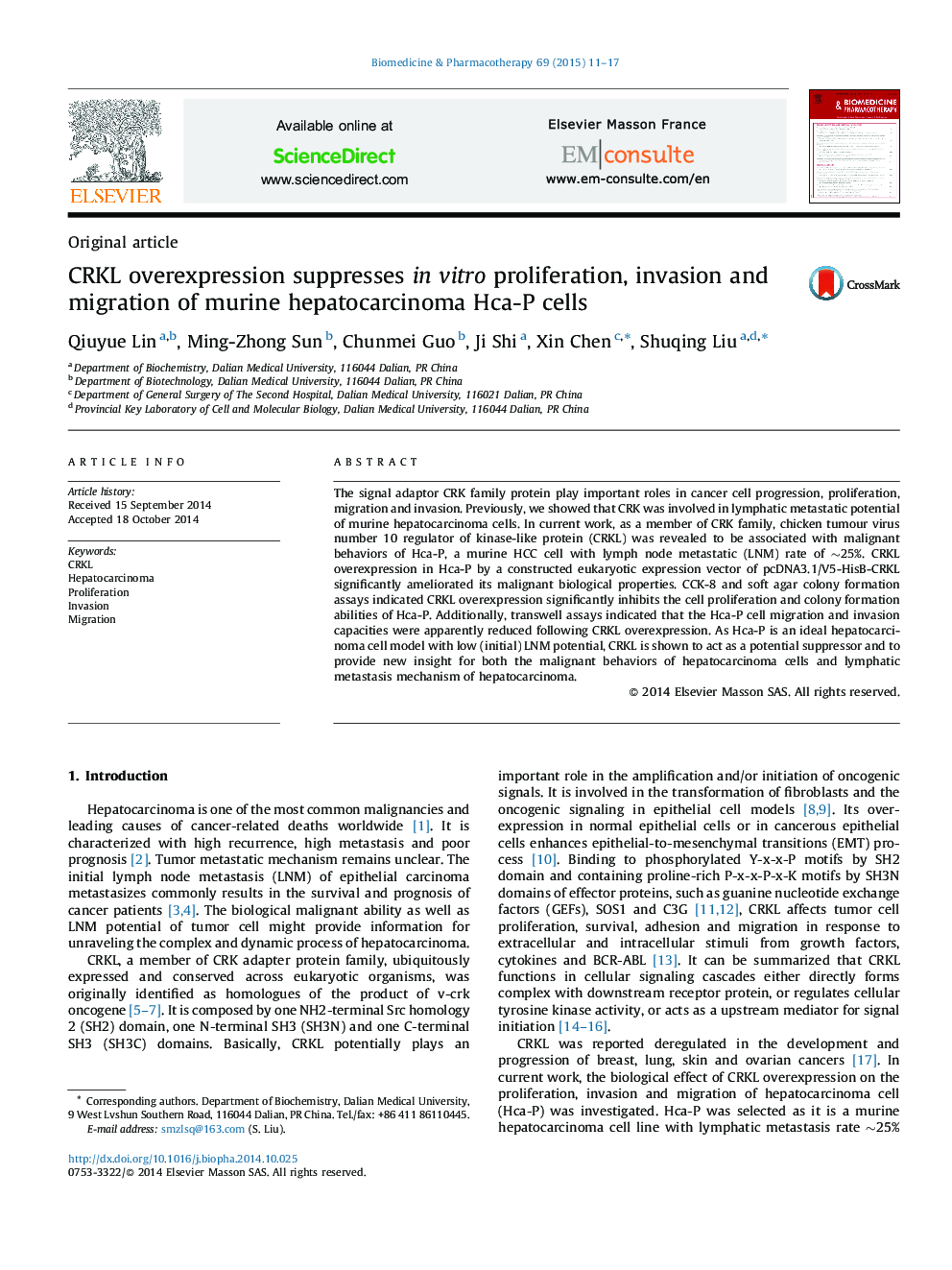| Article ID | Journal | Published Year | Pages | File Type |
|---|---|---|---|---|
| 2524111 | Biomedicine & Pharmacotherapy | 2015 | 7 Pages |
The signal adaptor CRK family protein play important roles in cancer cell progression, proliferation, migration and invasion. Previously, we showed that CRK was involved in lymphatic metastatic potential of murine hepatocarcinoma cells. In current work, as a member of CRK family, chicken tumour virus number 10 regulator of kinase-like protein (CRKL) was revealed to be associated with malignant behaviors of Hca-P, a murine HCC cell with lymph node metastatic (LNM) rate of ∼25%. CRKL overexpression in Hca-P by a constructed eukaryotic expression vector of pcDNA3.1/V5-HisB-CRKL significantly ameliorated its malignant biological properties. CCK-8 and soft agar colony formation assays indicated CRKL overexpression significantly inhibits the cell proliferation and colony formation abilities of Hca-P. Additionally, transwell assays indicated that the Hca-P cell migration and invasion capacities were apparently reduced following CRKL overexpression. As Hca-P is an ideal hepatocarcinoma cell model with low (initial) LNM potential, CRKL is shown to act as a potential suppressor and to provide new insight for both the malignant behaviors of hepatocarcinoma cells and lymphatic metastasis mechanism of hepatocarcinoma.
